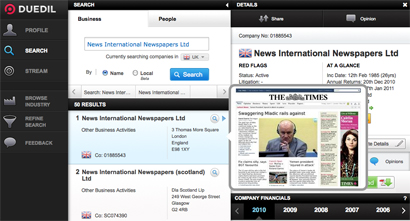As reported on Journalism.co.uk, we said farewell to the Newspaper Education Trust last night. A small gathering at Westferry Printers on London’s Isle of Dogs closed the door on a project that had run for 15 years and given over 30,000 schoolchildren a taste of the newsroom. I have written before about the project’s closure shortly after I heard about it in June, and said then that the failure to provide the funds to keep this project going was an indictment of the trade. Last night’s event reinforced that view.
The enthusiasm with which the kids embraced their ‘day in the newsroom’ and the effect it had on their confidence can’t be overestimated. When I described the project as ‘inspirational’ I was conscious that overuse has devalued the word’s currency, but it is appropriate in this case. Reading the testimonials from the kids backed this up, and hearing tales of proud parents mounting their child’s front page in gold frames which took pride of place at home provided further insight into what this meant.
I only met the project’s dedicated chief executive Anna Pangbourne earlier this year, when she approached me after a debate at Publishing Expo and explained what the NET did. That it has been going for 15 years and provided so much for so many is thanks to the work and backing of the project’s staff, but also the backers and the trustees. So I don’t want to be too critical, especially as someone who came to the NET late. But looking at those backers I wondered how it was that, even in these recessionary times, these organisations could not find the relatively small amounts required to keep the project going. Especially when the NUJ, with access to considerably more meagre resources, did pledge some money as I helped Anna in a last push for finance.
It all came to an end very fast. When I spoke to Anna in March she mentioned a potential funding problem. Three months later the NET was wound up. I should emphasise I don’t want to come across as critical of anyone who has helped the project throughout its 15 years – without their efforts and support it wouldn’t have existed in the first place. And yet…
Here we had a resource with cutting edge equipment – the NET used Smart boards long before many media groups – which demonstrated both the power of the media and how it could empower people. It sparked schoolchildren’s imagination by involving them in the process of investigating, questioning and creating, and boosted their confidence by encouraging them to follow up their judgments. This is the generation who, we are led to believe, do not recognise the difference between journalism and simply communicating, whose blogging and Facebooking and video gaming and digital dexterity means all existing media will be swept away and replaced by a vast communal conversation. And yet here they were, valuing the process of checking, standing up stories, working out how to present information to target readers – creating the very media too many in the trade display such a depressing lack of confidence in.
At the closing event, the ‘move to a digital age’ was cited as one reason why the decision to wind up the NET on a high was taken. And yet the NET had not only embraced digital production technology for print, it had also began to offer basic TV bulletin courses in its media studio. Plans for expanding into podcasting and greater use of converged media were also being made. That all sounds very much like moving to a digital age to me.
One of the NET’s many achievements has been to pass on the legacy of its work, and the Tower Hamlets Summer University will be taking on some of the kit and course framework to offer its students. I’m talking to the Summer Uni about the possibility of linking up with London’s journalism colleges, and with the Summer University model now being taken up across London and beyond there is a chance that what the NET started can be taken on and built on a much wider scale.
Why is all this important? There’s an obvious answer, and a not so obvious one. If any trade wants to attract and nurture the best, it needs to inspire and illuminate future generations. But this is not just about the trade getting a new workforce. Much is said about the information age, but many educators and politicians are still thinking in boxes rather than realising that communications skills are key to so much of modern life. It’s not just potential journalists who need to know how to handle media technology and process information – the ability to communicate well is more vital than ever before.
If anyone is interested in developing any of this, I’d be happy to hear from you.
This post originally appeared on MartinCloake.wordpress.com. Martin Cloake is a writer, production journalist and media consultant. His website can be found at this link.
